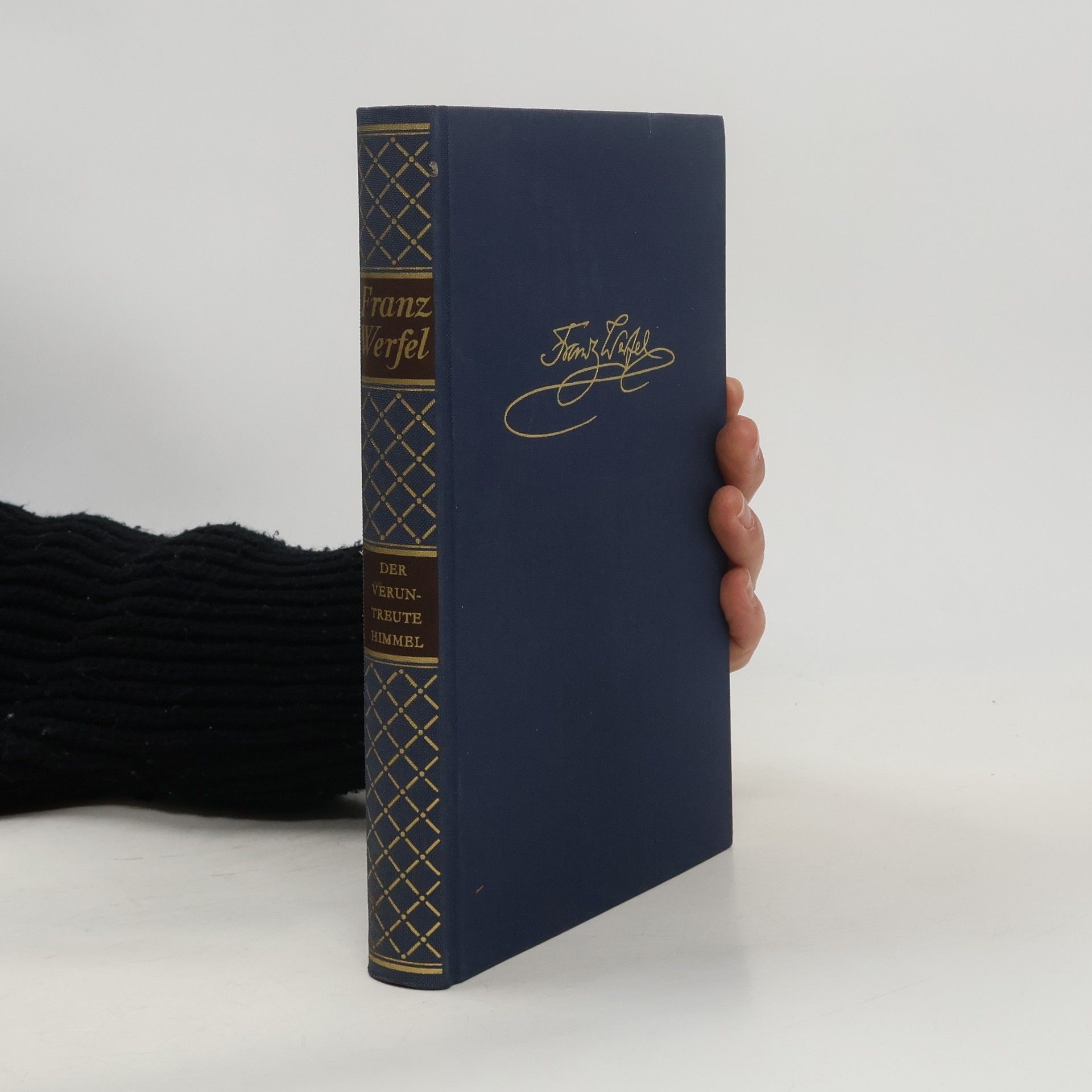An epic in novel form telling of the miraculous visions of a poor French girl at Lourdes.
Franz Werfel Boeken
Deze auteur onderzoekt centrale thema's als religieus geloof, heldendom en menselijke broederschap. Zijn werken duiken vaak in historische gebeurtenissen en menselijke weerstand tegen onderdrukking. De stijl van de auteur wordt gekenmerkt door sterke verhalende kwaliteiten en diepe contemplatie van spirituele zaken. Zijn schrijven wordt gezien als een brug tussen verschillende culturen en geloven.







The Forty Days of Musa Dagh
- 824bladzijden
- 29 uur lezen
During World War I, Gabriel Bagradian learns of Turkish plans to exterminate the Armenians, and leads his village to the mountain Musa Dagh in hopes of defending themselves.
Životní příběh starozákonního proroka Jeremiáše byl a zůstává stále i naléhavým varováním před všemi podobami osobního a společenského násilí. Tak jej chápal i slavný pražský rodák Franz Werfel (1890–1945) ve svém románu o těžké úloze této velké biblické postavy, Román vznikal pod vlivem tíživých událostí v Německu roku 1936, a to umocňovalo působnost dávného Jeremiášova poslání. Přestože již v roce 1933 byly v Německu spáleny všechny Werfelovy spisy, neváhal se svým novým dílem postavit sílící totalitní nacistické praxi a vůbec všem, pro něž byla vždy prvořadou jejich vlastní moc. Ve Werfelově pohledu se tak postava babylonského krále Nabukadnezara stávala snadno srovnatelnou s osobou Adolfa Hitlera, utrpení proroka Jeremiáše s utrpením Židů či zničením Jeruzaléma a jeho Chrámu roku 586 př. Kr., apokalyptickým obrazem budoucnosti Evropy ohrožené nacismem. I dnes si vynikající Werfelovo dílo zachovává svou aktuálnost. Vždyť totalitní myšlení nijak nevymizelo ze světového dění, jen jeho metody mění svou tvář.
Historický román nemeckého autora opisuje osudy malého arménskeho národa, žijúceho na území Turecka, ktorý chceli Turci začiatkom tohto storočia brutálne vyhubiť. Štyridsať dní sa hrdinsky bráni päťtisíc Arméncov na hore Musa Daghu proti presile zúrivých Turkov. Dielo je vysoko umelecké,plné objektívnosti a humanistického zápalu za osud mladého národa. 2. svazky.
Hrozná legenda o přetržené oprátce
- 45bladzijden
- 2 uur lezen
Typicky "werfelovský" příběh o spravedlnosti, zločinu a trestu a jejich možných absurdních rovin.
Držíce v drzých držkách cigarety
- 184bladzijden
- 7 uur lezen
Výbor Držíce v drzých držkách cigarety představuje poezii expresionismu, moderního uměleckého směru, který se v nejčistší podobě projevil v Německu a Rakousku v letech 1910–1920. Tento směr odráží životní postoj generace konfrontované s rychlým rozvojem Berlína, jeho továrnami, automobily, biografy a rušným nočním životem. V atmosféře očekávání vznikaly apokalyptické vize Georga Heyma, grotesky Jakoba van Hoddise a Alfreda Lichtensteina, stejně jako šokující básně-pitevní protokoly Gottfrieda Benna. Expresionistické desetiletí přineslo množství literárních talentů a rozmanitou literární produkci, jejíž část nyní představujeme českému čtenáři. Antologie se zaměřuje na raný velkoměstský expresionismus a na autory, kteří si zaslouží samostatné výbory v češtině. Druhá část přináší nejznámější a nejpozoruhodnější básně, které toto hnutí obohatilo o významné tematické okruhy. Mezi autory patří Jakob Van Hoddis, Georg Heym, Alfred Lichtenstein, Gottfried Benn a další významné osobnosti, které formovaly expresionistickou poezii.



